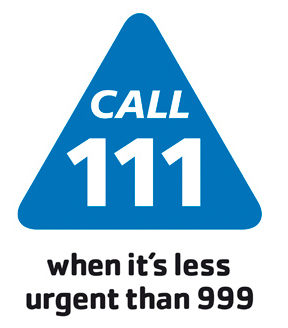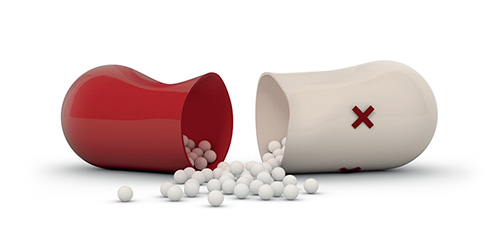Leaflets to discuss with patients
UTI Leaflet - all adults
UTI – All Adults - web version
Urinary tract infections (UTIs)
A leaflet for adults
Version 2.0. Published: November2024. Revision date: November 2027
Developed with healthcare professionals, patients and professional medical bodies. TARGET is operated by the UK Health Security Agency
Contents
What is a UTI?
A urinary tract infection (UTI) occurs when bacteria in any part of the urinary system cause symptoms. A diagnosis is made mainly on your symptoms. Urine dipstick tests are only used for women under 65 who don’t have a catheter.

What can you do to help prevent a UTI?
Are you drinking enough?
Drink enough fluids. Regular drinks, like water or squash will boost hydration and help your body stay healthy. The NHS England Eatwell Guide recommends that people should aim to drink 6 to 8 glasses of fluid a day. Your bladder can be irritated by too much alcohol, fizzy drink or caffeine.
Stop bacteria spreading from your bowel into your bladder
- Keep your genital area clean and dry. Avoid scented soaps. Change incontinence pads often, and clean your genital area if soiled.
- Pee after having sex.
- Wash the external vaginal area with water before and after sex
- Wipe your genitals from front to back after using the toilet.
Repeated UTIs
- If you are female and past the menopause, vaginal hormone treatments may help.
- If you are male, ask for support from your healthcare professional.
- You could try taking cranberry dietary supplements, D-mannose (for younger women) or probiotics. Some women find these effective. The evidence to support their use is inconclusive.
What symptoms should I look out for?
Signs and symptoms in ALL adults
- Burning pain when peeing
- Peeing at night more often than usual
- Cloudy urine
- Peeing more often than usual
- Feeling the need to pee immediately
- Blood in your urine
- Pain in your lower tummy
If you have a catheter, also consider these symptoms
- Shivering or shaking
- High or low temperature
- Kidney pain in your back just under the ribs
- New or increased confusion, change in behaviour or being unsteady on your feet
Symptoms of a UTI in OLDER, FRAIL adults
These symptoms may be more noticeable in older, frail adults
Wetting yourself more often than usual
New or increased confusion, change in behaviour, or being unsteady on your feet
High or low temperature
Shivering or shaking
Urinary symptoms may also be caused by the following
- Pain or discomfort after sex
- A sexually transmitted infection (STI)
- Vaginal changes during or after the menopause
Other things that may cause confusion in older adults
- Pain
- Poor sleep
- Constipation
- Side effects of medicine
- Poor diet
- Other infection
- Not drinking enough
- Change in routine or home environment
What can I do to feel better?
What you can do
Drink enough fluids. Aim to drink 6 to 8 glasses of water or squash a day
Take paracetamol regularly, up to 4 times a day to relieve pain
You could try taking cranberry capsules or cystitis sachets. Some women find these effective. The evidence to support their use is inconclusive.
What your pharmacist, nurse or doctor may do
Give self-care advice and advise you to take pain relief (paracetamol or ibuprofen)
Ask you for a urine sample to test
You may be given an antibiotic to take immediately or take if your symptoms don’t improve or you start to feel worse.
You may be referred to another healthcare provider
If you have repeated UTIs and self-care options do not help
- You may be prescribed antibiotics to take at night or after sex
- Vaginal hormone treatments may help some women after the menopause
Advice about antibiotics
- Antibiotics can be life saving for serious urine infections, but they are not always needed for mild urinary symptoms
- Taking any antibiotics can make bacteria that live inside your body more resistant. This means that antibiotics may not work when you really need them
- Common side effects of taking antibiotics include thrush, rashes, nausea, vomiting and diarrhoea. Ask for advice if you are worried
- Only take antibiotics if your healthcare professional advises you to – they will work better this way
Taking antibiotics when you don’t need them may put you and your family at risk.
When should I get more urgent help?
You should see a health professional if you have UTI symptoms and:
- your symptoms are getting a lot worse, or not starting to improve within 2 days of starting antibiotics; or
- you are pregnant, male or you have recently had an operation
The following symptoms could be signs of a serious urinary infection and should be assessed urgently
Shivering, chills and muscle pain
Not going for a pee all day
Trouble breathing
Blood in your urine
Feeling very confused, drowsy, or having slurred speech
Temperature above 38ºC or below 36ºC
Kidney pain in your back just under the ribs
Very cold skin
Vomiting
If you have the symptoms above, contact your GP urgently or use the following services for your region.
Trust your instincts – ask for advice if you are not sure how urgent your symptoms are
NHS England

NHS 111 Wales

NHS Scotland

Northern Ireland
Contact your GP practice


For any leaflet queries please contact us:
TARGETantibiotics@ukhsa.gov.uk